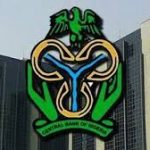The Central Bank of Nigeria (CBN) has raised concerns over growing credit risks at the top end of the lending market, as large private non-financial corporations (PNFCs) and other financial corporations (OFCs) recorded fresh declines in loan repayment performance in the first quarter of 2025.
According to the apex bank’s latest Credit Conditions Survey Report, both segments posted negative default index scores of -0.6, signaling that more lenders reported worsening defaults than improvements. This marks a reversal from the modest gains seen in previous quarters, when large corporates and OFCs had shown signs of better debt servicing.
In the fourth quarter of 2024, large firms had a positive default score of 4.3, following a 4.9 score in Q3, while OFCs recorded even stronger scores of 5.0 and 6.8 during the same period. The latest figures, however, reflect mounting pressure on these entities’ ability to meet loan obligations, raising red flags for commercial banks and policymakers, especially as these segments hold a significant share of Nigeria’s corporate credit exposure.
While larger entities stumbled, the report shows that small and medium-sized businesses maintained a relatively healthier position. Small businesses posted a positive default index of 0.5 though down from 9.0 in the previous quarter, while medium PNFCs came in at 3.0, indicating steady if modest improvements. Lenders attributed this trend to tighter underwriting practices and improved business cash flows, which appear to be helping smaller borrowers keep up with repayments.
Household loans also continued on a path of recovery. Secured household lending recorded a default index of 3.9, while unsecured loans rose to 5.0 in Q1 2025, marking a sustained rebound from the high default rates that plagued the segment between 2022 and early 2023. This improvement has come amid rising demand for personal loans and overdrafts, although appetite for mortgages and credit cards remained subdued.
Despite increased demand for credit,especially among corporate borrowers and for secured lending, banks responded by tightening credit scoring criteria. Approvals rose for corporate and secured loans but fell for unsecured credit, reflecting a more cautious stance among lenders.
Loan pricing also adjusted during the quarter. The report noted that spreads over the Monetary Policy Rate (MPR) widened across most lending categories, including both secured and unsecured household loans. Corporate lending also experienced wider spreads, except for OFCs, which saw a narrowing of margins. This suggests that while lenders are pricing in more risk for most borrowers, some are still attempting to accommodate OFCs potentially in anticipation of improved liquidity or government support.
The worsening default trends among large firms and OFCs could pose significant implications for the financial sector. Analysts warn that if left unchecked, the trend may lead to increased loan provisioning, more restrictive credit policies, or reduced willingness to offer large-ticket loans—all of which could undermine broader economic recovery efforts.
Although the CBN clarified that the report captures the views of participating lenders and not the bank’s official position, the findings provide important insights into credit dynamics and risk perception across Nigeria’s financial system. As large firms struggle under economic pressures, regulators and lenders alike may need to re-evaluate exposure risks and adjust strategies to safeguard financial stability.










